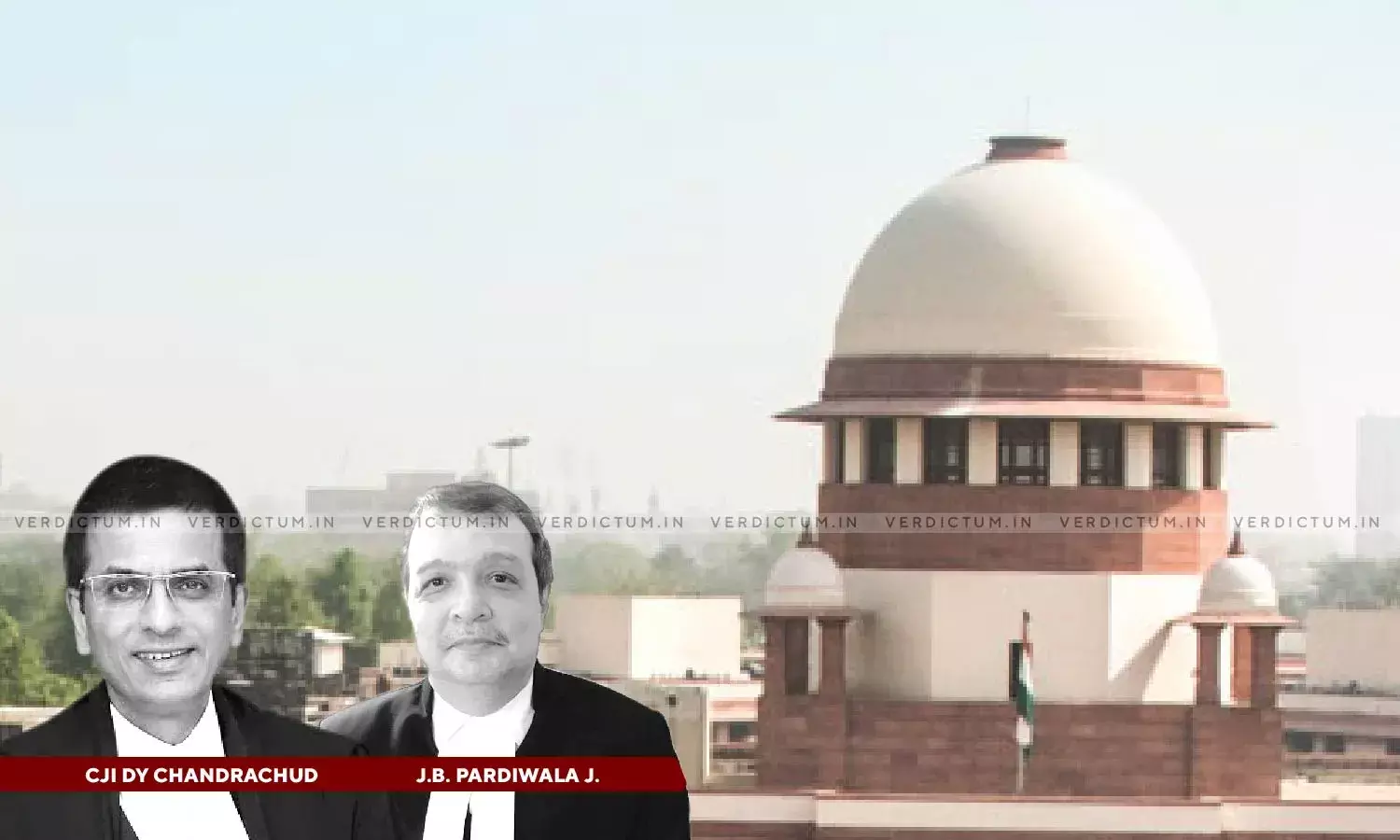Supreme Court Reserves Verdict In SLP Against Madras HC's Order Holding That Downloading And Watching Child Porn Is Not Offence

The Supreme Court has reserved its verdict in a Special Leave Petition (SLP) challenging a Madras High Court's ruling which said that mere downloading and watching child pornography is not an offence under the POCSO Act and the Information Technology Law.
The High Court had, on January 11, quashed the criminal proceedings against a 28-year-old man charged with downloading on his mobile phone, pornographic content involving children.
The Bench of Chief Justice DY Chandrachud and Justice JB Pardiwala said, "Arguments concluded; judgment reserved."
At the outset, Senior Advocate H.S. Phoolka, appearing for the Petitioner, two NGOs, submitted, "Written submissions have been filed by us as well as the Respondent No. 1 (S Harish, a resident of Chennai)."
During the course of the hearing, the CJI said, "Somebody merely receiving on his WhatsApp inbox, that's not an offence."
"He is possessing, he has it," Phoolka contended.
Justice Pardiwala said, "What did you expect him to do? That he should have deleted it? The fact that he did not delete for 2 years constitutes an offence?" On a bare perusal of the provisions of the POCSO Act, the Court said, "There has to be an intent to share or transmit, that's a matter for trial."
Phoolka referred to a Canadian Judgment and submitted, "The moment the possession is proved, the onus shifts on to the Accused."
Senior Advocate Swarupama Chaturvedi, appearing for the National Commission for Protection of Child Rights (NCPCR), submitted, "We have filed our Intervention Application, with the data. We have been taking actions as per law and sending summons, but the problem is not limited to one State, there are a number of States."
"There are three different segments. The problem is that they (High Court) have gone into child watching pornography, instead of child being used, a complete misplacement of facts, altogether," Chaturvedi added. She sought an hour for making submissions.
CJI said, "Yes. Child watching pornography may not be an offence, but a child being used in pornography is. The Intervention is allowed. You may file your written submissions by Monday 5 p.m."
Accordingly, the Court reserved the verdict in the SLP.
It is to be noted that on March 11, the Bench issued notice in the SLP. The Court had also sought the response of S Harish, a resident of Chennai, and the Tamil Nadu Police.
On January 11, 2024, the Madras High Court had held that the mere act of watching or downloading child pornography does not make out an offence under Section 67-B of the Information Technology Act, 2000 (IT Act). The Court had discussed the issue of pornography addiction and sexually explicit material on the internet being readily available. The Court had expressed, “Viewing pornography can have negative consequences on teenagers down the line, affecting both their psychological and physical well being.”
A Single-Judge Bench had acknowledged the challenges of porn addiction amongst teenagers and observed, “The Generation Z Children are grappling with this serious problem and instead of damning and punishing them, the society must be mature enough to properly advice and educate them and try to counsel them to get rid of that addiction.
Cause Title: Justice Rights for Children Alliance and Anr. v. S. Harish & Ors. [SLP(Crl) No. 003665 - 003666 / 2024]

